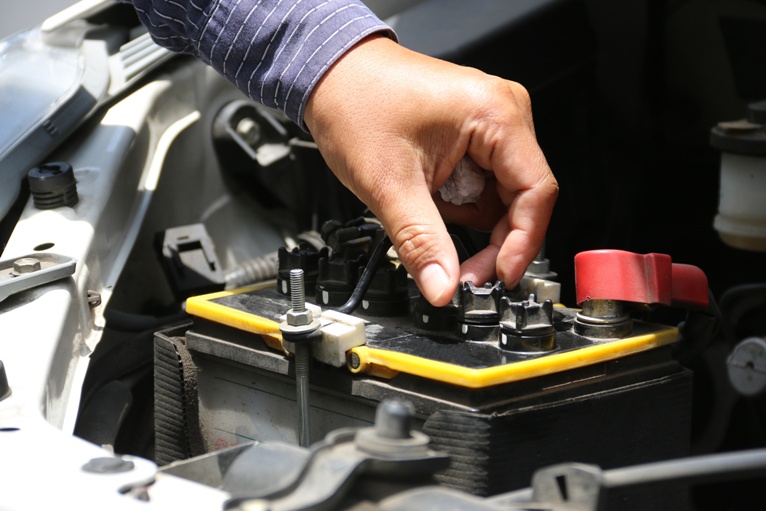Industrial Battery Chargers: Powering Up Your Operations
In today’s world, technology and automation have become the norm in many industries. As a result, industrial operations require a reliable source of energy to keep things running smoothly. Industrial battery chargers play a crucial role in ensuring that operations do not come to a halt due to power outages or insufficient energy supply. In this article, we will explore the importance of industrial battery chargers and how they can help power up your operations.
What are Industrial Battery Chargers?
Industrial battery chargers are electronic devices that are designed to charge and maintain the charge of industrial batteries. These batteries are typically used to power heavy machinery, vehicles, and other equipment used in various industries such as manufacturing, mining, transportation, and logistics. Industrial batteries are made up of lead-acid cells or lithium-ion cells. The type of battery used depends on the requirements of the equipment or machinery being powered.
Why are Industrial Battery Chargers Important?
Industrial battery chargers are important for several reasons. Firstly, they ensure that equipment and machinery are always powered up and ready to operate. This is particularly important in industries where downtime can cost thousands of dollars per hour. Secondly, industrial battery chargers help to extend the life of batteries by maintaining their charge levels and preventing overcharging or undercharging, which can shorten the lifespan of the battery. Thirdly, industrial battery chargers help to reduce the cost of energy by charging batteries during off-peak hours when energy rates are lower.
Types of Industrial Battery Chargers
There are several types of industrial battery chargers. The most common types are:
1. Float Chargers – These are designed to maintain the charge of batteries that are not in use. They provide a low level of current that is just enough to keep the battery fully charged.
2. Fast Chargers – These are designed to charge batteries quickly. They are typically used in applications where downtime is critical and batteries need to be charged as quickly as possible.
3. Opportunity Chargers – These are designed to charge batteries during short breaks in between operations. This helps to ensure that the battery is fully charged and ready for the next operation.
4. Multi-Voltage Chargers – These can charge batteries with different voltages. They are typically used in applications where different equipment or machinery requires different voltage levels.

Choosing the Right Industrial Battery Charger
Choosing the right industrial battery charger is important. The choice will depend on several factors such as the type of battery being used, the application, and the charging requirements. It is important to consult with a reputable supplier or manufacturer to ensure that the right charger is selected. Factors to consider when choosing an industrial battery charger include:
1. Power Output – This refers to the amount of power that the charger can deliver. It is important to ensure that the charger can deliver enough power to charge the battery in a reasonable amount of time.
2. Charging Time – This refers to the amount of time it takes for the charger to fully charge the battery. It is important to ensure that the charging time is not too long or too short.
3. Efficiency – This refers to the percentage of energy that is transferred from the charger to the battery. It is important to choose a charger that is highly efficient to minimize energy waste and reduce costs.
4. Durability – This refers to the quality and durability of the charger. It is important to choose a charger that is built to last and can withstand the harsh conditions of industrial environments.
Konklusion
In conclusion, industrial battery chargers play a critical role in powering up operations in various industries. They help to ensure that equipment and machinery are always powered up and ready to operate. They also help to extend the life of batteries and reduce the cost of energy. Choosing the right industrial battery charger is important and requires careful consideration of factors such as power output, charging time, efficiency, and durability. By selecting the right charger, industrial operations can run smoothly and efficiently, with minimal downtime and maximum productivity.
-
 As a vehicle owner, one of the most important things you need to ensure is that your starter battery remains charged at all times. A dead battery can be frustrating and can leave you stranded in the middle of nowhere. In this article, we will discuss some tips on how to prevent your starter battery from discharging. 1. Use...Læs mere
As a vehicle owner, one of the most important things you need to ensure is that your starter battery remains charged at all times. A dead battery can be frustrating and can leave you stranded in the middle of nowhere. In this article, we will discuss some tips on how to prevent your starter battery from discharging. 1. Use...Læs mere -
 Introduction: As the global energy demand continues to rise, it has become imperative to explore innovative solutions to meet this growing need sustainably. The integration of smart grids with lithium batteries presents a promising avenue for revolutionizing energy management. This article delves into the potential benefits, challenges, and future prospects of this integration. 1. Benefits of integrating smart grids...Læs mere
Introduction: As the global energy demand continues to rise, it has become imperative to explore innovative solutions to meet this growing need sustainably. The integration of smart grids with lithium batteries presents a promising avenue for revolutionizing energy management. This article delves into the potential benefits, challenges, and future prospects of this integration. 1. Benefits of integrating smart grids...Læs mere -
 Off-roading has always been an exhilarating and adventurous activity for outdoor enthusiasts. Whether it is conquering rough terrains, crossing muddy trails, or navigating through challenging landscapes, the thrill of off-roading is unmatched. However, the traditional off-roading vehicles often come with a significant drawback - the limited range and power supply. This limitation is now being overcome with the revolutionary UTV...Læs mere
Off-roading has always been an exhilarating and adventurous activity for outdoor enthusiasts. Whether it is conquering rough terrains, crossing muddy trails, or navigating through challenging landscapes, the thrill of off-roading is unmatched. However, the traditional off-roading vehicles often come with a significant drawback - the limited range and power supply. This limitation is now being overcome with the revolutionary UTV...Læs mere -
 Whether you are a seasoned sailor or a novice boater, having a reliable and efficient power source is essential for a smooth and enjoyable experience on the water. A marine starting battery is a vital component of any boat, providing the necessary energy to start the engine and power various onboard systems. In this article, we will explore the importance...Læs mere
Whether you are a seasoned sailor or a novice boater, having a reliable and efficient power source is essential for a smooth and enjoyable experience on the water. A marine starting battery is a vital component of any boat, providing the necessary energy to start the engine and power various onboard systems. In this article, we will explore the importance...Læs mere -
 As technology continues to advance, the demand for reliable and efficient power solutions has also increased. This has resulted in the development of various forms of energy storage options, including lithium-ion batteries, lead-acid batteries, and nickel-metal hydride batteries. However, one type of battery that has been gaining popularity in recent times is the 48V LiFePO4 battery. This type of...Læs mere
As technology continues to advance, the demand for reliable and efficient power solutions has also increased. This has resulted in the development of various forms of energy storage options, including lithium-ion batteries, lead-acid batteries, and nickel-metal hydride batteries. However, one type of battery that has been gaining popularity in recent times is the 48V LiFePO4 battery. This type of...Læs mere -
 Introduction: In this article, we will discuss the process of filling a battery with water. It is important to note that not all batteries can be filled with water, and this process is specifically for batteries that are designed to be topped up with water. Follow these steps to ensure safe and proper battery maintenance. Step 1: Determine Battery...Læs mere
Introduction: In this article, we will discuss the process of filling a battery with water. It is important to note that not all batteries can be filled with water, and this process is specifically for batteries that are designed to be topped up with water. Follow these steps to ensure safe and proper battery maintenance. Step 1: Determine Battery...Læs mere -
 In recent years, the demand for electric vehicles has seen a dramatic increase. As we move towards a greener environment, the need for more efficient and sustainable energy sources has become an important issue. Lithium Iron Phosphate (LiFePO4) battery packs have emerged as a promising alternative to traditional lead-acid batteries. LiFePO4 battery packs are rechargeable lithium-ion batteries that use...Læs mere
In recent years, the demand for electric vehicles has seen a dramatic increase. As we move towards a greener environment, the need for more efficient and sustainable energy sources has become an important issue. Lithium Iron Phosphate (LiFePO4) battery packs have emerged as a promising alternative to traditional lead-acid batteries. LiFePO4 battery packs are rechargeable lithium-ion batteries that use...Læs mere

